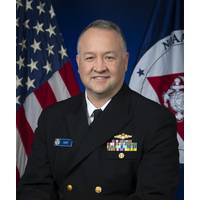
Chad Cary to Lead NOAA Corps and Office of Marine and Aviation Operations
thank my predecessor, Vice Admiral (select) Nancy Hann, for her vision, courageous leadership and service to the nation.”Cary was born and raised in Alaska. He earned a bachelor’s degree in environmental science with an emphasis in marine sciences from the University of North Carolina at Chapel Hill before joining the NOAA Corps in 2001. He also holds a master’s degree in geography from Portland State University and a graduate certificate in legislative studies from Georgetown University
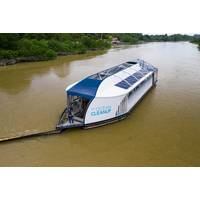
The Ocean's Microplastics Mess: Technology & Technique to Identify & Clean Up
to quantify the distribution and impact of marine microplastic pollution on local marine vertebrates. Juan Pablo Muñoz-Pérez, a research scientist at the Galápagos Science Center (a joint effort between the Universidad San Francisco de Quito and the University of North Carolina at Chapel Hill), is on the forefront collecting and analyzing samples from the archipelago’s most threatened creatures to support the improved management of such contaminants in Ecuador. Between June and September of 2019, he and his team sampled 98 marine iguanas from nine different habitats (these locations
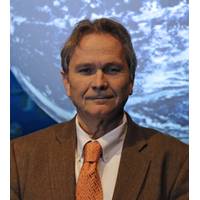
NOAA Names Werner Director of Scientific Programs
Fisheries Science Center (SWFSC). Cisco brings extensive experience leading scientific efforts in the federal government and previously in academia as Director and Professor of Rutgers University’s Institute of Marine and Coastal Sciences and Chairman of the University of North Carolina at Chapel Hill’s (UNC-CH) Department of Marine Sciences. While at UNC-CH, Dr. Werner was the George & Alice Welsh Distinguished Professor from 2005-2008. From 2007-2017 he was co-Editor in Chief of the journal Progress in Oceanography. Cisco’s research has focused on the oceanic environment
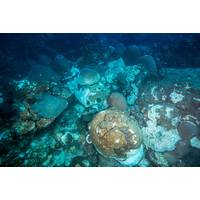
Why is Coral Dying at East Flower Garden Bank?
assistance in trying to help discover the cause. An initial response cruise was launched with Texas A&M University (TAMU), July 30-August 2, to collect water samples for water chemistry sampling. A second response cruise, led by FGBNMS, with partners from Rice University, UNCW-Chapel Hill and TAMU, took place August 4-7. Researchers conducted photo transects and scooter surveys, and collected more than 300 samples of corals and sponges, both affected and unaffected, as well as directed water samples in specific areas of the impacted reef. These samples will be analyzed to look
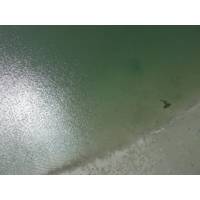
Drones Detect Sharks in Intercoastal Waters
Researchers from Duke University and UNC-Chapel Hill are testing the ability of drones to detect sharks in coastal waterways. In a collaborative study funded by North Carolina Aquariums, researchers are examining whether drones can effectively pinpoint bonnethead sharks in different habitats and water conditions. “We’re really interested in the role that these kind of predators take on in coastal systems,” said Dave Johnston, director of the Unoccupied Systems Facility at Duke’s Marine Lab in Beaufort, North Carolina. “We’re also really
Oil-hungry Bacteria Could Clean Up Next Big Oil Spill
with the samples revealed that certain bacteria had thrived on the oil that gushed into the Gulf, devouring the oil as a preferred food source. In a paper published in Nature Microbiology Dr Gutierrez and his colleagues from the University of Texas and University of North Carolina at Chapel Hill reveal the genetic pathways these bacteria use to consume the oil, what conditions they thrive in, what oil hydrocarbons they can eat, and how they work in concert during an oil spill. “Oil is a very complex fluid that contains thousands of different types of hydrocarbon chemicals, many

 December 2025
December 2025





